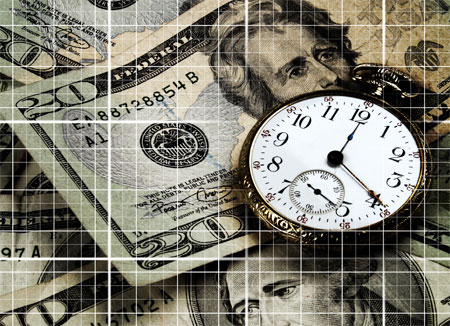How Long Does Credit Repair Really Take?
 You’ve decided it’s time to do something about your credit score. That’s great news! Now more than ever a good credit score can open the doors to many different opportunities. Today your credit score can be used to determine a variety of things such as your employment value, your insurance rates and whether or not you are a good candidate for a loan.
You’ve decided it’s time to do something about your credit score. That’s great news! Now more than ever a good credit score can open the doors to many different opportunities. Today your credit score can be used to determine a variety of things such as your employment value, your insurance rates and whether or not you are a good candidate for a loan.
Once you know you want to do something about it, you may be wondering exactly how long this is actually going to take. Well, the answer really depends on what your end goal is.
First, you need to understand how your credit score went down in the first place. Any of these factors could have contributed to your score:
- Missed/late payments
- Default on loan
- Bankruptcy
- Collections
- Unpaid tax liens
One of the quickest ways to repair your score is to actually obtain your credit report and look for any errors. Often things are misreported and can be cleared up to provide an improvement in your score.
For legitimate claims, to get a “clean” credit report, most negatives will drop off after seven years (ten years in the case of a chapter 7 bankruptcy). This may seem like a long time, but you don’t have to wait that long to actually see an improvement in your score
For instance, if your credit score has dropped due to late payments, getting back on track within 30 to 60 days can help bring your score back up. However, if you let the payments go past 90 days, it can affect your rating for up to two years. You can avoid this type of slip up by setting up automatic payments through your bank for all credit-related bills.
If your credit score has dropped for other reasons such as bankruptcy and collections, while it may take longer to repair, there are ways to make more immediate improvements. Having a credit report record of no late payments or new claims for three years can provide some improvement of your score. In addition, you’ll only want to have one or two credit cards, and only charge around 25% of your credit limit. This shows that you are being responsible with the credit you do have.
This may seem time consuming, but it’s important to remember that your immediate credit history is the most important. So, while you should be focusing on repaying or handling past debt, you also need to make sure your current bills and obligations are being handled first.


Latestpost
14
Jul
Factors That Can Help First-Time Borrowers Establish Credit
It is one thing to have bad credit in today’s wo ...

Download our
FREE GUIDE
and get weekly money-savings tips!
KnowledgeBase
Essentials




